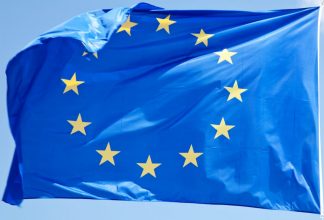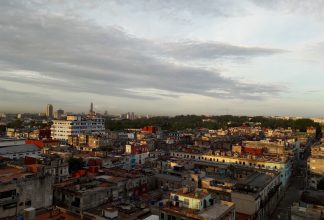Recommendations to the European Parliament, the European Commission, the High Representative for Foreign Affairs and the Member States
Letter #6 by San Isidro Movement.
In July 2019, Civil Rights Defenders invited Cuban human rights defenders and civil society organisations to contribute with texts on how the European Union should work towards Cuba. This letter is written by the San Isidro Movement.
Recommendations to the European Parliament, the European Commission, the High Representative for Foreign Affairs and the Member States
Background
A totalitarian dictatorship has prevailed in Cuba for 60 years. There is a very poor economy, a society in constant migratory flight and an internal crisis that goes from economics and politics to ethics and morals.
In recent years, the people on the island, also the United States, Latin America and Europe, thought that the Cuban system within the timid transformations that it has been making, would initiate an opening process, slow in its performance but concrete in the results. This has been a huge disappointment.
In 2019, repression for political and economic reasons has increased alarmingly, putting in doubt that external appeasement policies have produced concrete results in civil, cultural and political freedoms and respect for Human Rights.
These policies were the result of the change of strategy under the Obama administration in the US, a mark that would test the true intention of change of the Cuban government, as well as the variation of the Common Position adopted by the European Union.
In both cases it could be observed how the communist government used it to obtain benefits in terms of integration to international mechanisms, obtaining credits and benefits of cooperation, greater reception of tourists, clearing the image of a country that represses civil rights and freedoms, etc. However, these changes did not bring objective results for the Cuban citizens, neither in the matter of civil rights, nor with respect to economic freedoms that were announced by the Cuban government.
Currently, Cuban society lives in material and moral impoverishment, with very high rates of corruption, almost absolute control of information by the Communist Party, rationing of basic goods and food, lack of other goods, urban infrastructure with a high degree of deterioration, sharp levels of citizen repression in areas such as independent journalism, pro-democracy and cultural activism and against any common citizen who expresses criticism openly to the prevailing system.
By exercising repression to its citizens, the government uses the legal system as a political weapon, creating sets of laws, some preventive (that is, they are undertaken before any crime is committed) and others in clear violation of international norms and human rights according to United Nations.
Culture, which is the focus of our work and our competence, in its different manifestations, is controlled by the administrative apparatus of the Communist Party, censoring any manifestation contrary to the Fidel´s declaration, “with the revolution, everything; outside the revolution, nothing” (1961, “Words to the Intellectuals”). Artists have been censored, harassed, expelled from their work and often imprisoned for carrying out a critical work or performance, particularly in public spaces. These spaces are controlled under the slogan “the streets belong to the revolutionaries.”
There are not only human rights defenders or political activists under intense harassment. Private businesses have also suffered a considerable increase in persecutions; these are manifested by the direct closure of business, seizure of premises and vehicles, confiscation of work materials, very high taxes and fines, and a highly corrupt network of inspectors.
This is the reality (unfair and unsustainable) in Cuba today.
For all the above, and much more that it is impossible to express in brief lines, we make a set of recommendations to the European Parliament and its new elected representatives.
Recommendations:
– The first and most important would be for the European bloc to persist, and even demand, for a complete democratisation of Cuba.
The civil, political and economic freedoms issue should be the core of the request for dialogue and cooperation. We understand as a basic concept of democratisation due respect and compliance with the Covenants on Civil and Political Rights; and the one on Economic, Social and Cultural Rights that the Cuban government signed in 2008. We understand as democratisation the full and indivisible respect for the Universal Declaration of Human Rights of which Cuba is also signatory since 1948. An explicit means would be a call on the Cuban authorities to the ratification of the agreements signed in 2008.
– Europe and its representatives must understand that Cuba is not synonymous with “Cuban government,” as the Party-State claims. Cuba is made up of its people and, therefore, a multiplicity of ideas and social proposals. Europe should work and dialogue with all parties. A clear way to do it (already used previously) is to invite independent civil society to national events or celebrations at European embassies on the island.
Accordingly, it must undertake development programs that involve funds for cooperation in different areas such as civil society, culture, ecology, politics, etc. This would represent invaluable support for the development of these areas within the framework of independent civil society projects. We consider that it could perfectly maintain a dialogue with both sides of the Cuban equation, government and its loyal groups and independent groups with different proposals. Europe could also promote exchange programs between independent Cuban civil society and the different groups of European civil society.
The EU may put together experiences of the former communist countries of Western Europe with current experiences suffered by Cubans working for democracy.
– Commercial and economic activity is one of the thorniest issues for Cuban society. It is government policy to maintain low levels of income in Cuban society in order to preserve paternalistic dependence of the people towards the State-Party.
Europe and the members of the Union have negotiated a number of agreements with the government, but none of them benefits the common people. On what ethical basis can Europeans or other foreigners earn money on Cuban soil, when this same macro-scale activity is banned for the men and women of the island? That is economic discrimination. Europe and its businessmen should understand that in the future, a new democratic government could retaliate against European companies based in Cuba for contributing to exploit the Cuban labour force and for denying them basic rights. For a long time, Cubans, as second-class citizens, were banned from entering hotels. The Spanish Melia chain would be a good example.
This questioning is not intended to be a threat but a reflection on the basis of the current popular feeling. This point, rather than a recommendation, becomes a reflection on the unsustainability of the current economic system.
– The use of language is a pending subject. Recently, Federica Mogherini, the High Representative for Foreign Affairs, called the Cuban system “a one-party democracy.” This is not only nonsense in contemporary politics, but also is an insult to all those who crave and work to obtain civil rights and freedoms within Cuba. We understand that, as part of diplomacy, hostile language is not productive, however, the diplomatic euphemism that tucks in a dictatorship before the dialogue of nations, is misguided and ends up distancing the opposition from policies and its representatives in the European Union. We would strongly recommend greater firmness and clarity in political lecture.
– Europe should take on the challenge of conditioning the Cuban regime and exercise pressure for concrete steps regarding the respect for human rights.
In recent months, the Cuban government has increased its repression against opponents, critical artists, and independent journalists. In addition, it arbitrarily and without legal basis prevents the exit from the country to any of these sectors as punishment for their activity. If the Union does not put this under the spotlight, it is only playing a game with a very unfair system.
Europe may condition the signing of agreements, as well as financial cooperation, to Havana’s proof of concrete and visible steps taken towards respect for human rights and fundamental freedoms. This type of gesture would not only make the European bloc an ideal ally for Cuban democrats, but also an international champion in the fight for freedom and democracy.
– The European Union can create academic and study programs, similar to scholarships or short-term workshops, to enhance alternative thinking and empower leaders of Cuban civil society. It could also enhance artistic and cultural exchanges, focusing on the participation of artists and intellectuals from the island in events, exhibitions, exchanges, etc., on European territories. This would help raise the profile of works and creators, and allow an interrelation of the ideas about art and activism that have been used in other historical contexts permeated by totalitarianism.
Europe has suffered oppressive regimes at different times of their contemporary history. Cubans are waiting, vehemently, for their solidarity and support in the process of the democratisation of Cuba.
About San Isidro Movement
The San Isidro Movement (Movimiento San Isidro) is an organisation that was founded in 2018, following the campaign against Decree 349, a government decree that seeks to convert non-authorised artists into criminals. Its mission is the protection of cultural rights and the safeguard of the right to freedom of expression. Its founding members are Luis Manuel Otero Alcantara, Amaury Pacheco del Monte and Michel Matos Alonso.

